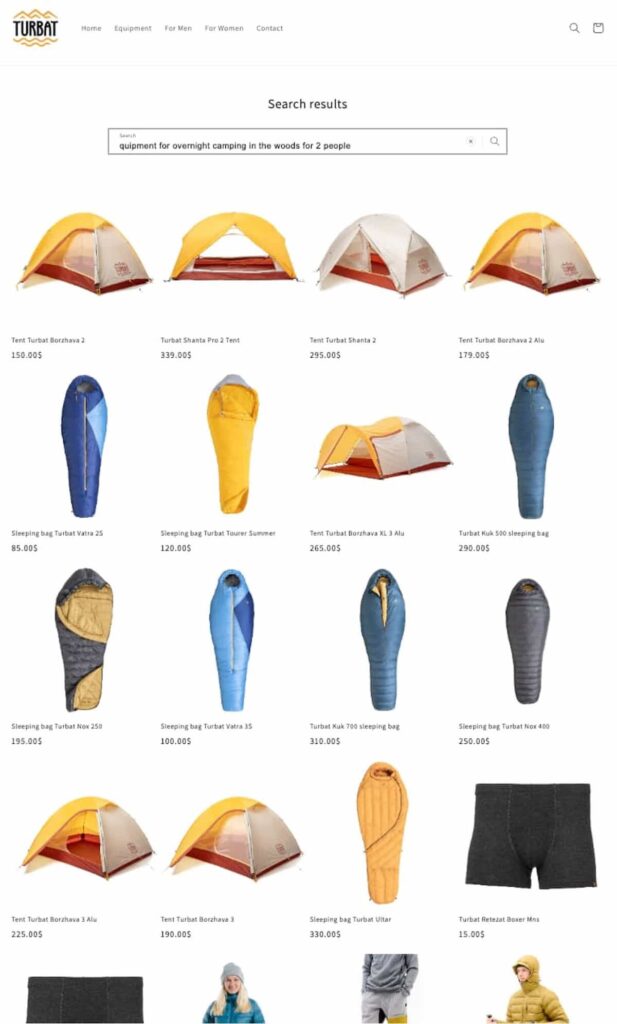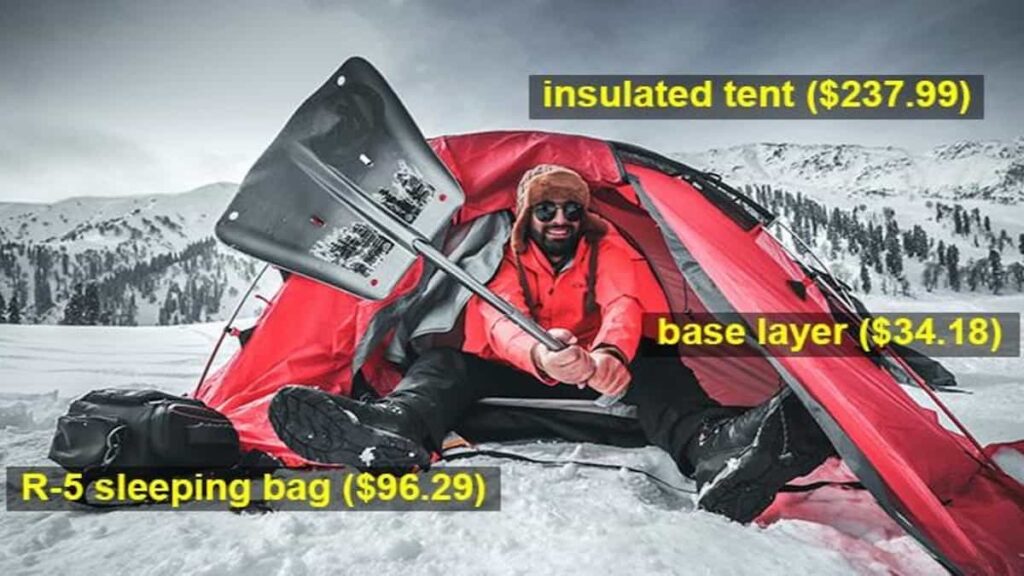Conversational commerce powered by generative AI and Large Language Models (LLMs) is going to fundamentally change the way you shop. Intelligent shopping assistants will be able to personalize your shopping experience with deeply contextual recommendations, detailed product information, and price optimization. For example, while shopping online at your favorite outdoors and sporting goods shop you place a tent, sleeping bag, and base layer in your shopping cart. The AI personal shopping assistant starts this conversation: “It seems like you’re getting ready for camping in cold weather. That’s exciting! Where are you headed? When?” In response to your answers, the assistant automatically checks your destination’s weather forecast and tells you: “It looks like it’s going to be about 32F (0C) when you get there but it’s going to drop to 21F (-6C) overnight. That’s unusual for this time of year, so it might be colder than you were expecting. The sleeping bag you selected only has an R3 rating and you’re going to need at least an R5 rating to sleep comfortably. Based on your past shopping, here’s one from your favorite brands in your favorite color. Here’s another brand we think you’ll come to love, and it costs 15% less. Your base layer might be too warm for where you’re headed. This one might be more comfortable and it’s on sale at 50% off.” All of this happens by simply putting three items in your cart.
From the shop owner’s perspective, the power of an intelligent shopping assistant can be accessed throughout the customer’s shopping journey. From their initial web search to the first few minutes they’re at your website. Without ever putting a single item into a cart, just by looking at the product categories and specific products your customer is browsing, it can trigger: “It seems like you’re getting ready for camping in cold weather…” Before checkout, you’ll have an opportunity to increase cart size through cross-sell and upsell merchandising. You’ve won them over by knowing their preferred brands and colors, saved them some money with discount recommendations, and now you have an opportunity to delight them even more: “It’s supposed to be hella windy during your stay. You might want to get these anchor tent stakes that will keep the wind from blowing away your tent. The tent you’re buying should be fine for the weather but if you want a double-insulated tent that will perform better, here’s our most popular one. It has a full-cover exterior to protect you from the elements and a mesh interior that will breathe and prevent condensation. No one likes waking up covered in ice. Amirite?”
Of course, all of this could be done without AI and LLM. You could have your product manager map these products together into a shopping bundle and come up with clever scripts and descriptions. But are they going to do that for the thousands of SKUs you have in your inventory? Are all of the permutations based on weather, temperature, and destination? Are they going to do that every time you add a new product? Or when a manufacturer changes a product that affects their weather rating? Are they going to have time to harvest each customer’s prior emails to understand that they are from the Bay Area and that colloquialisms like “hella” and “amirite” will put an unexpected smile on their faces? Probably not.
That’s what an intelligent personal shopping assistant powered by generative AI and LLMs can do for your business. It can do that whether you have a few hundred products in inventory or hundreds of thousands. But harnessing the power of this transformative technology will take time, money, and resources. Where do you start? How do you begin with a minimal investment and scale up as you achieve business results? How can you drive value for your business quickly?
You begin with the onsite search. Helping your customers discover the breadth and depth of your inventory with specificity and context is the first, easiest, and smallest investment you can make. Before you develop your all-knowing AI personal shopping assistant, before you data-mine your customer relationship management (CRM) database, and before you integrate your inventory and merchandising management system, you can make your existing search bar more powerful. You don’t need to change the look and feel of your shop’s website. You don’t need to change its core functionality. You simply need to upgrade the technology behind the scenes that powers your shop’s search. Integrating AI-enabled search is the first step that most businesses can take to start realizing benefits from generative AI and LLMs. Take the example below:

In this example, you can see the customer searches for “quipment for overnight camping in the woods for 2 people” and gets results across all product categories. Firstly, a complex, thematic query like that will usually return zero results on a non-LLM search engine unless the products actually had those words in their title or description. With LLM, genAI can respond to thematic searches. But that’s not all. Look closer. There’s a missing “e” in the query. That one typo, that one missing character in a non-LLM search, and you would also get zero products returned. Now, of course, this example hasn’t integrated weather forecast information as in our dream scenario at the beginning of this article, nor does it have any of the pricing and discounts optimization, but even this modestly AI-upgraded search that leverages your existing product data immediately creates value for your business. It doesn’t lead your customer to a dead-end with zero results.
Usually, this type of query happens in a web search engine. In that scenario, you are dependent on whether the returned search results include your website or whether the article titled, “Top 10 Must-Have Camping Gear for Italy in the Winter,” has a link to your shop. But for your returning customers, your loyal customers whose hard-earned trust you’ve already won, you get to keep them on your site. They don’t have to go to a web search. They don’t get links to visit one of your competitors. They know they can start their shopping journey directly with you. Your seasonal promotional emails can have links like, “The Ultimate Gear to Ski Like a Pro and Look Stylish While Doing It.” Clicking on that link returns all of your latest and greatest inventory without having to manually bundle any products, without having to write a blog article, or create a merchandising landing page, without being at the mercy of search engine optimization rules. You can delight your customers by giving them relevant products that are specific to any of their outdoor needs. Next time, when they’re planning a beach vacation they don’t have to start a web search. They start directly at your shop to find swimwear and snorkeling gear by typing in your shop’s search bar, “Show me the latest and greatest beach gear.” As your business increases, you can then make additional investments to add more AI features that can anticipate your customer’s needs and preferences.


